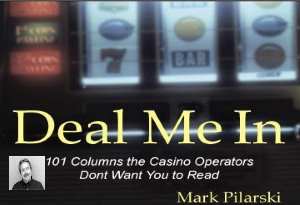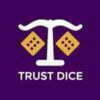I’ve got a dinner riding on this. My husband believes that you, being conservative when it comes to casino gambling, would never play the lottery. Do you? Rachel P.
I once asked a friend of mine if he ever played the lotto and he fired back, “I play occasionally, twice a week.” Slightly different than my personal approach, mainly because I come from a background of evaluating odds in every playing situation. So yes, I’ll come clean and confess I play, but only when the jackpot is close to the true odds of hitting a (California) 6/51 ticket-which happens to be one in 18,009,460.
Now as for lotto strategy, I just play quick-pick numbers. Quick-picks provide a more random spread of numbers coupled with the fact that the pot isn’t divided up as much as when you play birthday or sequence numbers. Obviously this will result in a much larger payoff if you win.
Here’s what I mean, Rachel. One of the most popular number combinations in every state lottery is 1-2-3-4-5-6. Illustrating this, I’ll use the September, 1990, Florida $106 million jackpot as an example. Won by six players, the jackpot netted the chosen few $17 million apiece. Sure, we’ll all take that without complaining, but for that same jackpot, more than 52,000 people played the numbers 1-2-3-4-5-6. See how playing a sequence combination of numbers will affect the payoffs to eventual winners? The same can be said with those lucky birthday dates as well. Over 65% of the numbers played in most state lotteries are under 31.
So, Rachel, you win the dinner, and that’s how I play. Close to true odds, and random numbers.
One thing I like about the casino I play in is the way they handle coins. They don’t. You insert bills and play on credits only. When you cash out, the machine prints a ticket and you take it to the cashier’s cage (within 2 hours). It really is cleaner. Do you agree? Donny M.
Donny, you didn’t mention the casino by name, but I suspect it’s on an Indian Reservation because many operate using this method of coin exchange-for which I firmly give two thumbs down! Why? Because you become prisoner to one machine-which has a huge built-in mathematical edge-putting the casino in position to grind the $20 right out of you.
Let’s get realistic here. Who really has the discipline to get up from that cushy seat, walk over to the cashier’s cage, turn in the credit slip for cash, and then find another suitable machine? Far too many undisciplined players just won’t free themselves from this ball and chain scenario and, unfortunately, will play their credits down to nothing. So $20 inserted most likely becomes $20 for the casino.
What is the difference between a soft comp and a hard comp? Leta R.
Before you try strong-arming a casino to get your fair share of comps, it behooves you to know the difference between a hard comp and a soft comp. One is much easier to get from the casino than the other. Hard comps are reimbursements for airline tickets, golf, concerts, off-site casino shows or anything else that would cost the casino real out-of-pocket dollars. Soft comps are cocktails, restaurant expenses and shows that the casinos produce themselves. Whales (high limit players) can get anything their hearts desire, but if you’re a low-limit player, go for a soft comp because casinos technically purchase them wholesale and bill them to a comp account retail.




















